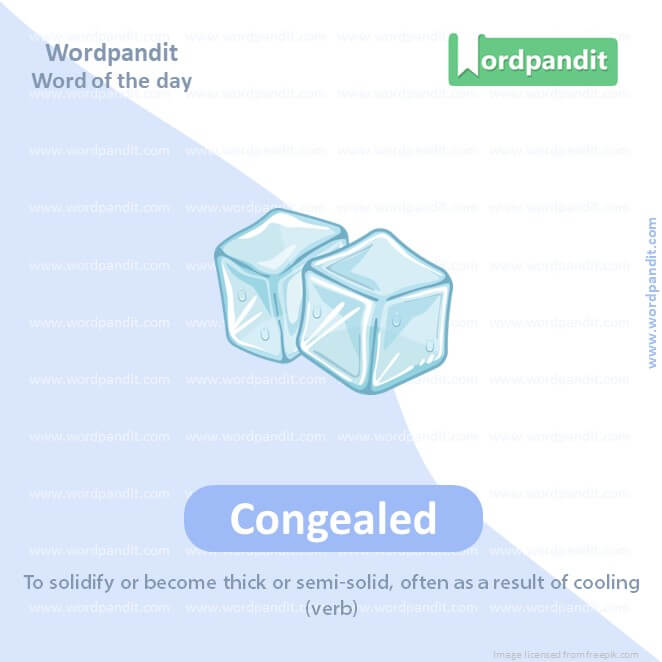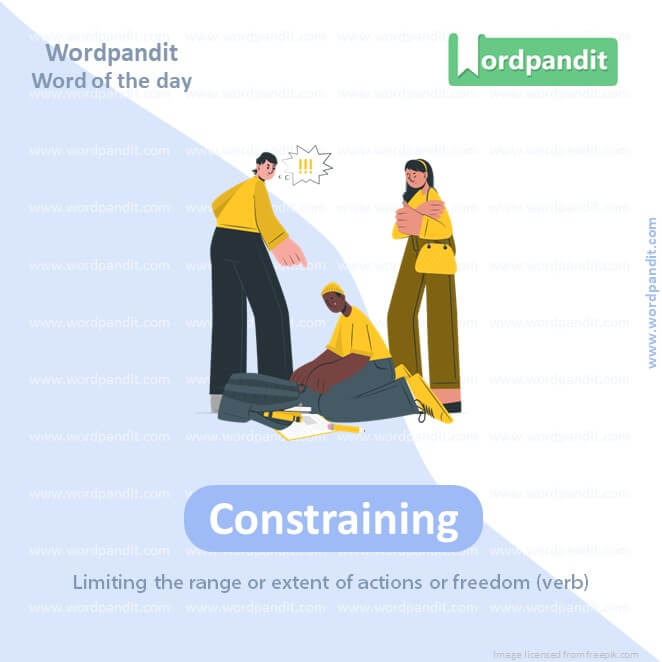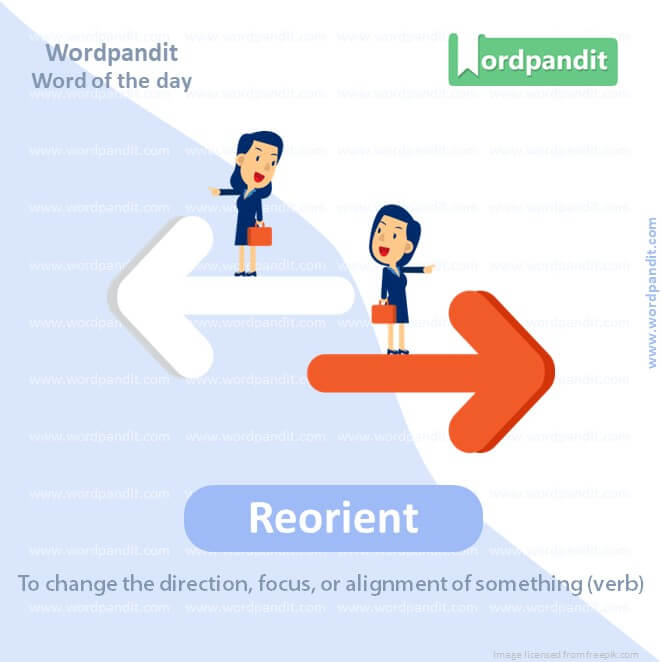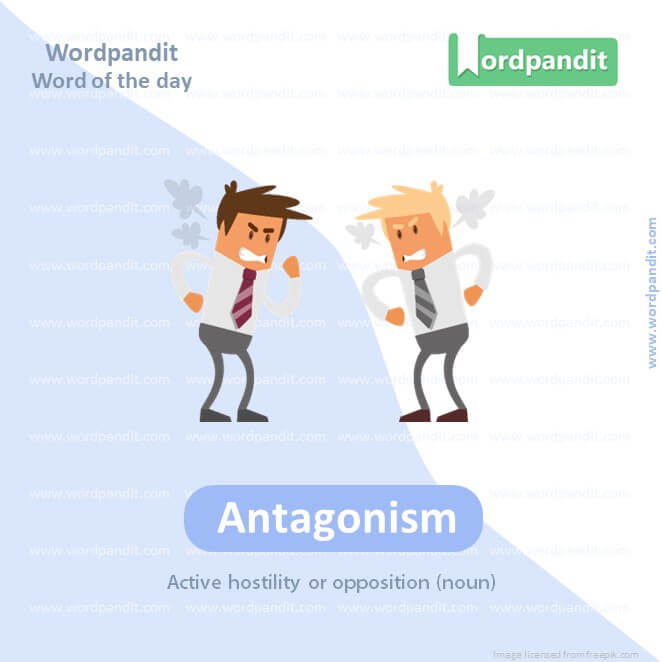Daily Vocabulary Words: Enhance Your Lexicon with Leading Newspapers & Publications
Welcome to the Daily Vocabulary section at Wordpandit!
Our mission is straightforward: to bring you essential vocabulary words featured in top newspapers and publications worldwide. By focusing on words you’ll encounter in renowned sources, we aim to help you enhance your vocabulary effectively and practically.
Our selection includes words from:
– The New York Times
– The Washington Post
– Scientific American
– BBC
– The Guardian
– Psychology Today
– Wall Street Journal
– The Economist
– The Hindu
– The Times of India
– The Economic Times
– Hindustan Times
– Live Mint
– The Indian Express
– And many more.
We are committed to your vocabulary development. Simply visit this section regularly and explore the daily posts. This is your go-to repository for commonly used words, providing significant practical benefits by familiarizing you with vocabulary from the leading publications listed above.
Make it a habit to visit our website daily and expand your lexicon with words from top newspapers and publications. (edited)
WORD-1: EXCRUCIATINGLY
CONTEXT: In a contest of excruciatingly small margins, Rohit Sharma’s men prevailed with a seven-wicket victory with speedsters Jasprit Bumrah and Mohammed Siraj being the wreckers-in-chief of the South African line-up.
SOURCE: The Hindu
EXPLANATORY PARAGRAPH: Imagine you have a tiny cut on your finger that really, really hurts, like when you accidentally touch something sharp. Now, imagine that feeling but even stronger. When something hurts a lot, we say it’s “excruciating.” If you do something “excruciatingly,” it means it’s so hard or painful that it almost feels like too much.
MEANING: In a manner that causes intense pain or suffering (adverb).
PRONUNCIATION: eks-KROO-shee-ay-ting-lee
SYNONYMS: Painfully, agonizingly, intensely, unbearably, severely, torturously
USAGE EXAMPLES:
1. The dentist’s drill made the toothache excruciatingly painful.
2. He waited excruciatingly long for the test results.
3. The movie was excruciatingly boring, making it hard to sit through.
4. She worked excruciatingly hard to finish her project on time.
WORD-2: OBNUBILATE
CONTEXT: Prevention is better than cure, but taking this adage to the extreme in the practice of medicine might obnubilate the very purpose of treating patients to recovery, and even turn out to be counter-productive.
SOURCE: The Hindu
EXPLANATORY PARAGRAPH: Imagine you’re trying to see something clearly, but a thick cloud or fog suddenly covers it, making it hard to see. To “obnubilate” means to make something cloudy or unclear, just like that fog hiding the view.
MEANING: To make something unclear or obscure (verb).
PRONUNCIATION: ob-NOO-bih-layt
SYNONYMS: Obscure, cloud, darken, blur, confuse, conceal
USAGE EXAMPLES:
1. The heavy rain obnubilated the mountain view.
2. Confusing explanations can obnubilate simple concepts.
3. His emotions obnubilated his ability to think clearly.
4. The fog obnubilated the road, making driving difficult.
WORD-3: ERRATIC
CONTEXT: The Newlands surface with erratic bounce and adequate juice for the seamers to excel, tested the very best of willow wielders.
SOURCE: The Hindu
EXPLANATORY PARAGRAPH: Imagine if a toy car you’re playing with suddenly starts moving in all sorts of crazy directions, instead of going straight. That’s what “erratic” means—when something doesn’t follow a normal or expected pattern and is all over the place.
MEANING: Acting, moving, or changing in ways that are not regular or predictable (adjective).
PRONUNCIATION: eh-RAT-ik
SYNONYMS: Unpredictable, inconsistent, irregular, random, haphazard, wayward
USAGE EXAMPLES:
1. The weather was so erratic, switching from sunny to stormy within minutes.
2. Her erratic behavior worried her friends.
3. The car’s erratic movements made it hard to control.
4. His erratic schedule made planning events difficult.
WORD-4: PRELUDE
CONTEXT: In the larger scheme, India drew the T20s at 1-1 and won the ODI series at 2-1, which became the prelude to the Tests.
SOURCE: The Hindu
EXPLANATORY PARAGRAPH: Think of when you hear the music start before a big show or movie; that first part is called a “prelude.” It’s something that happens before the main event, like a little introduction.
MEANING: An event or action that serves as an introduction to something more important (noun).
PRONUNCIATION: PREL-yood
SYNONYMS: Introduction, preface, foreword, overture, preamble, precursor
USAGE EXAMPLES:
1. The prelude to the concert was a beautiful piano piece.
2. The argument was just a prelude to a bigger disagreement.
3. The storm clouds were a prelude to the heavy rain.
4. The book’s prelude set the tone for the entire story.
WORD-5: MORBIDITY
CONTEXT: It is precisely the sort of misuse and overuse of antimicrobials, as revealed by the survey, which cause the development of drug-resistant pathogens that in turn pose great risk to life and exacerbate morbidity.
SOURCE: The Hindu
EXPLANATORY PARAGRAPH: Imagine hearing about something sad or dark, like a story that makes you feel uneasy. “Morbidity” is about things that are related to sadness, illness, or death—things that aren’t cheerful.
MEANING: The condition of being diseased or unhealthy; the rate of disease in a population (noun).
PRONUNCIATION: mor-BID-ih-tee
SYNONYMS: Illness, sickness, disease, gloominess, melancholy, unhealthiness
USAGE EXAMPLES:
1. The report highlighted the morbidity rates in the population.
2. The morbidity of the topic made the discussion quite somber.
3. The doctor was concerned about the morbidity associated with the disease.
4. The movie’s morbidity made it difficult to watch.

WORD-6: EXHILARATING
CONTEXT: The current trend resting on a muscular approach makes for exhilarating viewing but when batting line-ups collapse, it is equally disconcerting.
SOURCE: The Hindu
EXPLANATORY PARAGRAPH: Imagine the feeling you get when you’re swinging really high or going down a slide super fast—it makes you feel excited and full of energy. That’s what “exhilarating” means—something that’s super fun and makes you feel very alive and happy.
MEANING: Making one feel very happy, animated, or elated; thrilling (adjective)
PRONUNCIATION: ig-ZIL-uh-ray-ting
SYNONYMS: Thrilling, exciting, invigorating, electrifying, stimulating, energizing
USAGE EXAMPLES:
1. The roller coaster ride was exhilarating for everyone.
2. Winning the race was an exhilarating experience.
3. The exhilarating news made everyone cheer.
4. She found the hike through the mountains exhilarating.

WORD-7: CONGEALED
CONTEXT: It is common knowledge that power in all political parties has congealed in the hands of a few individuals.
SOURCE: The Hindu
EXPLANATORY PARAGRAPH: Imagine you have some melted chocolate, and when it cools down, it becomes hard again. That’s what “congealed” means—when something soft or liquid turns into a solid or thicker form.
MEANING: To solidify or become thick or semi-solid, often as a result of cooling (verb)
PRONUNCIATION: kun-JEELD
SYNONYMS: Solidified, thickened, hardened, coagulated, set, curdled
USAGE EXAMPLES:
1. The soup congealed after being left out overnight.
2. The wax congealed as it cooled down.
3. The blood congealed around the wound, helping it heal.
4. The sauce congealed into a jelly-like substance.

WORD-8: CONSTRAINING
CONTEXT: Much has been written about how the anti-defection law subverts representative democracy by constraining legislators to party leadership’s diktat.
SOURCE: The Hindu
EXPLANATORY PARAGRAPH: Imagine if someone put a tight belt around you and told you to walk. It would be hard to move, right? “Constraining” is when something holds you back or limits what you can do, making you feel like you can’t move or act freely.
MEANING: Limiting the range or extent of actions or freedom (verb)
PRONUNCIATION: kun-STRAYN-ing
SYNONYMS: Restricting, limiting, confining, restraining, holding back, hindering
USAGE EXAMPLES: 1. The tight schedule was constraining her ability to relax. 2. The small space was constraining for the large group. 3. Financial problems were constraining their ability to travel. 4. The rules were constraining the team’s creativity.

WORD-9: REORIENT
CONTEXT: Party members must use their influence to restrain their own party’s excesses and reorient focus towards substantive issues.
SOURCE: The Hindu
EXPLANATORY PARAGRAPH: Imagine if you’re lost in a maze, and you need to turn around to find the right way out. “Reorient” means to change direction or focus so you can go in the right way or do something better.
MEANING: To change the direction, focus, or alignment of something (verb)
PRONUNCIATION: ree-OR-ee-ent
SYNONYMS: Redirect, reposition, refocus, realign, readdress, shift
USAGE EXAMPLES: 1. She had to reorient herself after getting lost in the city. 2. The company decided to reorient its marketing strategy. 3. He needed to reorient his priorities after the life-changing event. 4. The teacher helped the students reorient their attention to the new topic.

WORD-10: ANTAGONISM
CONTEXT: The erosion of good faith in our politics has led to a mindless zero-sum antagonism, where only the most partisan, rather than those driven by public interest, can thrive.
SOURCE: The Hindu
EXPLANATORY PARAGRAPH: Imagine two people playing tug-of-war, each pulling hard in opposite directions. “Antagonism” is when people or things are in a fight or disagreement, pulling against each other instead of working together.
MEANING: Active hostility or opposition (noun)
PRONUNCIATION: an-TAG-uh-niz-um
SYNONYMS: Hostility, opposition, conflict, animosity, rivalry, enmity
USAGE EXAMPLES:
1. The antagonism between the two teams was obvious during the game.
2. There was clear antagonism in the debate over the issue.
3. The new policy caused antagonism among the employees.
4. Despite their antagonism, they managed to work together for the project.
Vocabulary Daily Words
Among the myriad aspects of language learning, the role of ‘vocabulary daily words’ attests to their undeniable importance. These everyday words form the bedrock of communication. Whether used in casual chat or formal discussion, the fluency and understanding of ‘vocabulary daily words’ can significantly uplift the quality of interaction. However, the vital question is, how to effectively learn these ‘vocabulary daily words’?
The crux of learning ‘vocabulary daily words’ lies in a well-rounded approach that encompasses exposure, understanding, memorization, and practice. Rote memorization might seem like a quick solution, but it lacks context and, thereby, retention. Hence, opt for a diverse range of resources like books, newspapers, podcasts, and digital media. These will bring ‘vocabulary daily words’ to life, providing real-life usage examples and making the learning process inherently engaging.
Next, using memory-enhancing techniques can significantly improve retention of ‘vocabulary daily words’. Techniques such as flashcards or the Leitner System align with the principles of spaced repetition, allowing more effective and long-term learning. Incorporating mnemonic devices, associating new words with unique stories or images, can further facilitate this learning process.
The key to fully grasping ‘vocabulary daily words’ lies in practical usage. Make it a habit to use these words in your daily communications. Whether it’s a friendly conversation, a professional email, or a social media post, try integrating these new words. Doing so provides hands-on practice, strengthening your comprehension and application of these words.
In a nutshell, ‘vocabulary daily words’ are a treasure in the language learning landscape. By harnessing diversified resources, utilizing memory techniques, and actively using these words, your grip on the ‘vocabulary daily words’ will strengthen significantly. So, turn the pages, hit play, start a conversation, and let these ‘vocabulary daily words’ shape the story of your linguistic journey.













